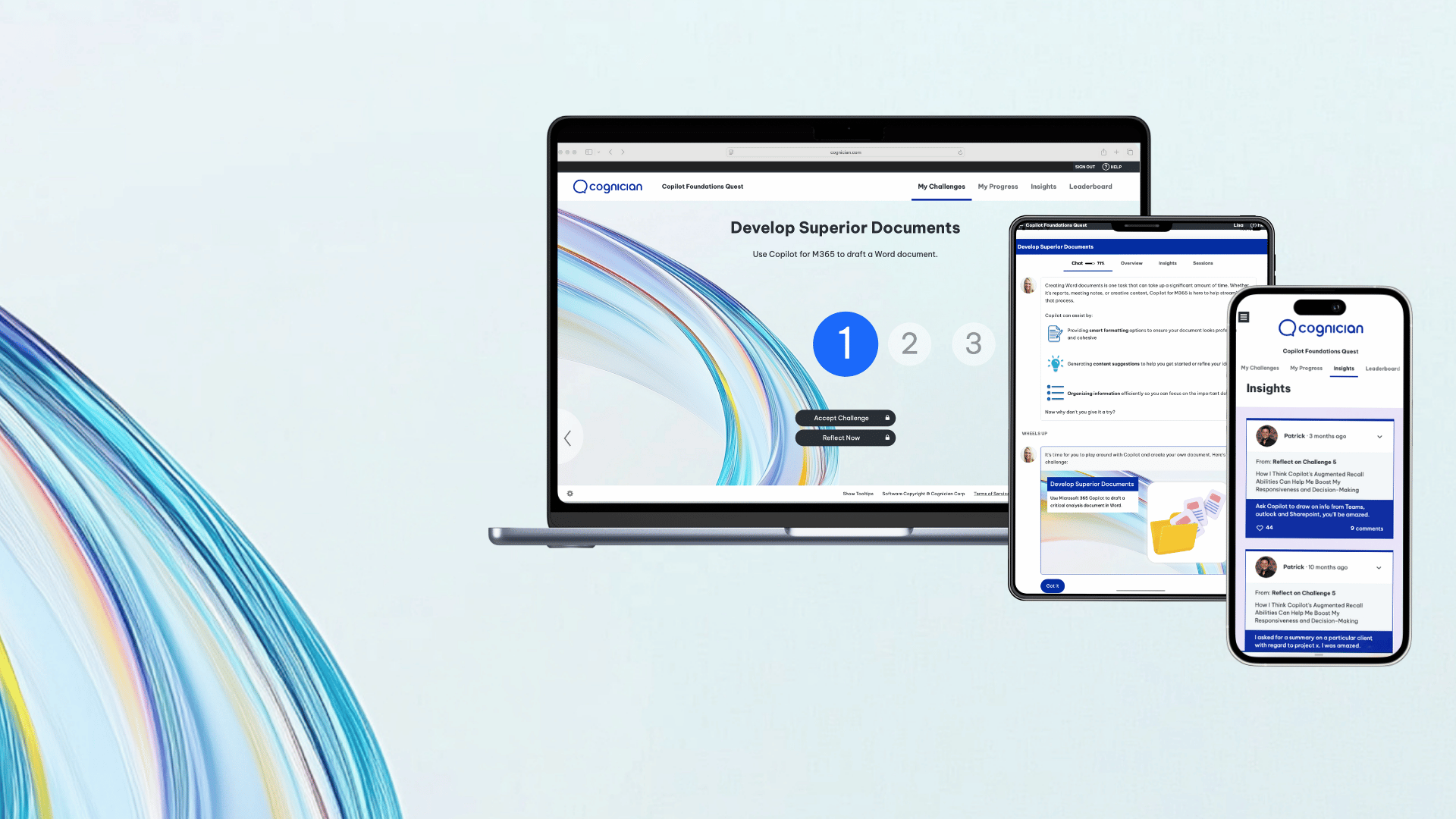"Wax on! Wax off!" As mentoring goes, who can forget the powerful lessons learned in the iconic movie The Karate Kid?
In the film, young Daniel is mentored by wise, old Mr Miyagi. He helps Daniel overcome the bullying of a group of karate-wielding thugs. Daniel’s impatient, angry underdog is in perfect contrast to Mr Miyagi’s stoic master. His lessons show how behavioral activation can help ordinary people overcome impossible odds.
"First Learn Stand, Then Learn Fly. Nature Rule, Daniel-San, Not Mine.”
Daniel’s transformation doesn’t happen overnight. It is a long, slow, methodical process. As Daniel soon realizes, there are limits to traditional teaching methods. He learns that even the most mundane tasks can give rise to mastery. At first, Mr Miyagi’s tactics seem self-serving. But they prove that some things cannot be taught. They have to be learned through patience and experience. And from trying and failing and learning from your mistakes. Daniel finally learns to listen to Mr Miyagi and open himself up to his benevolent wisdom. To quote Plutarch, "The mind is not a vessel that needs filling, but wood that needs igniting.”
But what does mentoring have to do with business today – especially in these times of change and uncertainty? Let’s take a look at why mentoring is a commitment to activating a lifelong learning mindset.
"If Come from inside You, Always Right One.”
Mentoring is an effective way of developing employees to reach their full potential. It can help take the raw building blocks of a person and shape them into a star employee. But it can also be a great tool for helping employees embrace and activate behavior change.
Change is never easy and growing is often painful. Great mentors can model how to meet change head on and help employees cope with its aftermath.
History is a continual story of change. It shows how mentoring is best at passing on wisdom, skills, advice, and knowledge. The ancient Greeks used the Socratic Method. In medieval times, the guild system used apprenticeship. In Hinduism and Buddhism the guru-disciple model is used and in Judaism and Christianity, they have their elders. This “buddy system”, as we know it today, has stood the test of time.
"Not Matter Who's Stronger. Matter Who's Smarter!"
In The Karate Kid, Mr Miyagi’s pragmatism may seem like obvious advice. Smarts trump strength. But it is only through his guidance and Daniel’s own experience that this message finally sinks in.
By embracing mentoring, businesses ensure that knowledge and experience stays within the organization. Experienced employees pass knowledge on to inexperienced colleagues. This cycle of give and take creates a culture of caring and sharing. Not only does it enable organizations to grow and keep staff, it is also an investment in its future.
Mr Miyagi is the stereotypical older, wiser master who imparts his wisdom on a young, green pupil. Yet, mentors don’t have to be senior or older than mentees. It’s not uncommon today to see younger, junior staff members teach older, more senior staffers a thing or two. It’s all about who has the relevant experience and knowledge.
"No Such Thing as Bad Student, Only Bad Teacher. Teacher Say, Student Do.”
Mentoring is a process and should be ongoing. It doesn't end when an employee learns a new skill or gains valuable knowledge. And each employee should have mentors through each step of their learning journey. Sounds impossible, right? Mentoring every single employee can be a logistical nightmare, especially in massive organizations. Who has the capacity, the time, and the manpower to embrace such an undertaking?
This problem can be overcome with a digital coaching program that simulates a conversation with a mentor. Cognician uses this approach with its chat-based interface. It has proven to be effective in activating behavior change. Plus, going digital allows employees to access guidance on demand and to work at their own pace and at their own convenience.
The best kind of mentoring helps employees how to learn for themselves. This enables them to continue learning for the rest of their lives on their own steam and without being spoon-fed. Even when they have moved on from their mentor, they can continue to seek out new mentors or find the resources that can help them to learn, grow, and develop.
Embracing mentoring activates the behavior of continual learning within a workforce. That learning is part of the fabric of the organization and a natural way of doing business.
"Inside You Have Strong Root. No Need Nothing except What inside You to Grow.”
Mr. Miyagi tried to teach Daniel that a strong spirit can overcome any setback. A good mentor can coach employees to dig deep, unlock their innate strengths, and help them gain some new ones.
Employees should always be growing and developing. Mentoring can offer them opportunities for self-improvement. It can help speed up their career advancement, not to mention building their confidence and encouraging self-reflection. It can also make them feel valued and cared for. This in turn can increase their job satisfaction and inspire loyalty.
Being mentored also exposes employees to different perspectives and approaches. This is particularly handy when employees need to buy into and embrace change. It also instills a culture of perpetual self-improvement – that you are never too old or experienced to learn.
"Lesson Not Just Karate Only. Lesson for Whole Life! Whole Life Have a Balance, Everything Be Better.”
The skills mentors teach their mentees help them to progress in their careers and benefits their personal development. These are skills such as how to be a good listener, a better problem solver, and a more effective communicator.
When it comes to business, every organization has its challenges and mentorships could be the solution to various problems. For example, onboarding new employees can be a stressful and challenging experience for the manager in charge. They have to introduce new employees to the organization’s culture and bring them up to speed in their new roles in the organization. This is especially difficult if these new employees are working remotely.
One of the best ways to overcome this challenge is to hook them up with a mentor who will show them the ropes and help them get settled in. Again, if time and people are an issue, an online onboarding program could be the answer, especially a program which simulates a mentor and mentee relationship.
"... Sometimes What Heart Know, Head Forget.”
Mentoring plays a vital role in learning. It's a more efficient way of enabling employees to learn from the experiences of others and gain valuable knowledge from their insights and reflections. It also helps employees to learn from the mistakes of others so that they can avoid the same pitfalls in the future.
Mentoring can translate the experiences of an expert into working knowledge. Fables and stories from mentors are passed down wisdom from generation to generation. Mentorship helps download what is in one worker's head, to the minds of many others.
Mentorship can also help develop a nurturing environment in an organization where employees feel supported, free to experiment, and try new things. It also helps create bonds between employees and leaders and within teams. It can cement their relationships with mutual trust and respect.
"You Trust the Quality of What You Know, Not Quantity.”
Today, it is not uncommon for workers to have many mentors, each offering different skill sets, experiences, and points of view. This more holistic approach to mentoring fills in gaps in an employee’s learning journey. It exposes them to a wider range of skills and knowledge. And it also creates a sense of continuity, building upon prior knowledge and skills.
Of course, a good mentoring program is nothing without good mentors. When choosing mentors, they need to have the right skills, experience, and knowledge. But, most importantly, they need to be approachable, good team players, patient, and fully invested in the process.
"When You Feel Life Out of Focus, Always Return to Basic of Life.”
Once suitable mentors have been chosen, they need ongoing support and encouragement. After all, great mentors aren’t always easy to come by. They are an essential part of developing a powerful workforce and nurturing tomorrow's leaders.
Finally, when matching mentors with mentees, they need to be compatible. This is essential in building a mentorship program committed to lifelong learning. If a business has a limited supply of mentors, then a digital activation program is the answer.
When it comes to talent management, there is no better tool than mentoring to take staff to the next level. And when it comes to activating behavior change at scale, digital mentoring is the crane kick!



.png)

